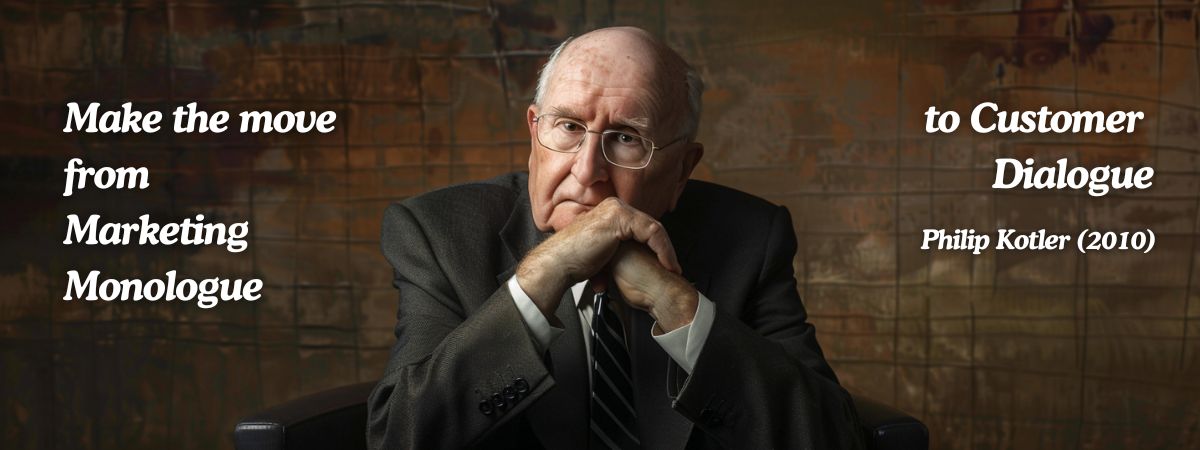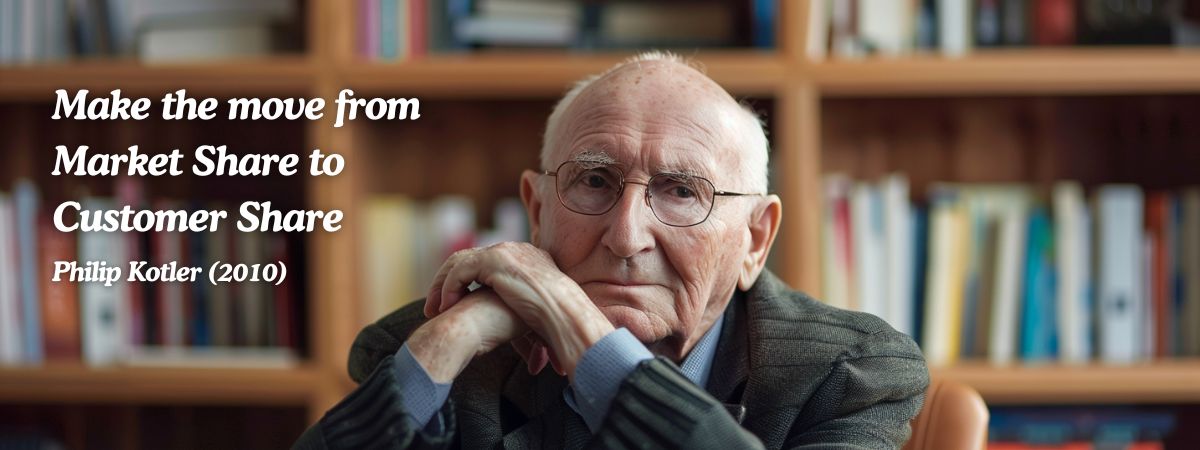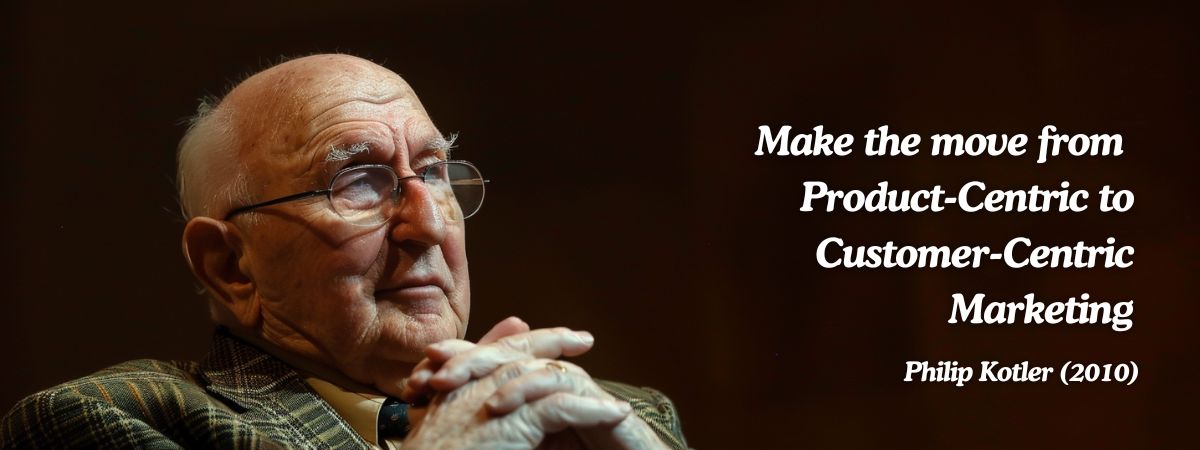Key Learnings from Philip Kotler’s Marketing Insights from A-Z
Philip Kotler, often hailed as the father of modern marketing, offers invaluable insights in his book “Marketing Insights from A-Z.” He emphasises understanding customer needs, adapting to changing market dynamics, and leveraging digital platforms to achieve marketing success. Here, we delve into nine key trends Kotler identifies, which can transform your marketing strategy:
Note:
This article features content from the Marketing Made Clear podcast. You can listen along to this episode on Spotify:
1. From Make and Sell to Sense and Respond Marketing
Kotler advocates for a shift from simply creating products and pushing them to the market towards a more responsive approach. Sense and respond marketing focuses on understanding customer needs and preferences, then tailoring products and services accordingly. This customer-centric approach ensures that your offerings resonate more with your audience, leading to greater satisfaction and loyalty.
2. From Customer Attraction to Customer Retention
While attracting new customers is essential, Kotler highlights the importance of retaining existing ones. Customer retention involves nurturing and maintaining relationships with your current customer base. This can be more cost-effective than acquiring new customers and can lead to higher lifetime value. Companies should ensure that loyal customers feel valued and appreciated, not just focusing on new customer promotions.
3. From Market Share to Customer Share
Instead of solely pursuing a larger market share, Kotler suggests focusing on increasing customer share. This means encouraging existing customers to buy more from your product range. Strategies like cross-selling and upselling can be effective here. However, it’s crucial not to neglect customer acquisition and retention in the process.

4. From Marketing Monologue to Customer Dialogue
Kotler promotes the idea of engaging in a dialogue with customers rather than delivering a one-way marketing message. This approach aligns with relationship marketing, where building long-term relationships with customers is key. Engaging customers in conversations can lead to better understanding, feedback, and loyalty.
5. From Mass Marketing to Customised Marketing
Customised marketing tailors messages and products to specific customer segments, moving away from the scattergun approach of mass marketing. This trend emphasises the importance of understanding and targeting the unique needs and preferences of different customer groups, leading to more effective and efficient marketing efforts.

6. From Owning Assets to Owning Brands
Building strong brand equity is more important than merely owning physical assets. A strong brand can command premium prices and foster customer loyalty. Investing in brand development can differentiate your company in a crowded market and create lasting value.
7. From Marketplace to Cyberspace
The digital revolution has transformed marketing. Kotler underscores the necessity of leveraging online platforms and digital marketing strategies. Companies must not ignore the vast opportunities presented by the digital marketplace, from social media to e-commerce, to reach and engage their target audience effectively.

8. From Single Channel to Multi-Channel Marketing
Utilising multiple marketing channels is more effective than relying on a single channel. Whether it’s social media, email marketing, print ads, or other platforms, a multi-channel approach can enhance reach and engagement. Diversifying channels also mitigates risks associated with changes in a single platform’s policies or algorithms.
9. From Product-Centric to Customer-Centric Marketing
Finally, Kotler emphasises the shift from focusing solely on products to centering marketing efforts around customers. Understanding and addressing customer needs should be at the core of all marketing activities. This customer-centric approach can drive loyalty, advocacy, and long-term business success.

Conclusion
Philip Kotler’s insights offer a roadmap for modern marketers. By embracing these trends, companies can build stronger relationships with their customers, adapt to the evolving market landscape, and achieve sustainable growth. Prioritising customer needs, leveraging digital tools, and adopting a multi-channel strategy are essential steps in this journey.
Up Next:
Marketing Strategy Trends


